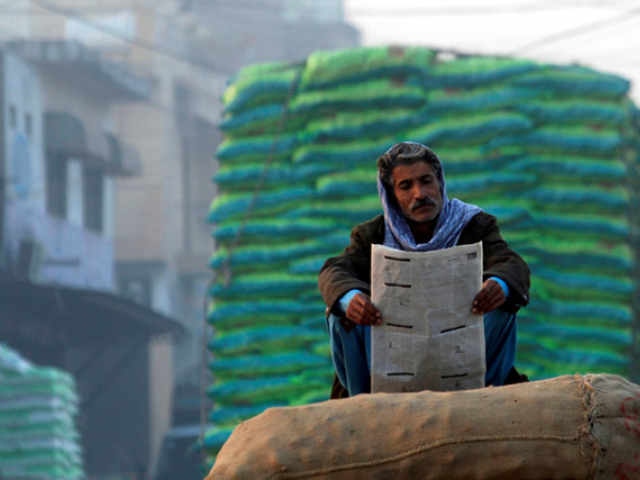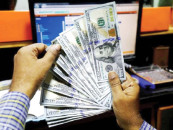Senate panel opposes extending Super Tax for another year
Says finance minister promised measure for just one year

PHOTO: REUTERS
The Senate Standing Committee on Finance and Revenue unanimously rejected the proposal to extend the Super Tax to fiscal year 2017-18. PML-N’s senators - Senator Saud Majeed and Senator Ayesha Raza Farooq - also opposed the government’s budget proposal to extend the levy to the third year.
Dar had made a promise on the floor of the house that the Super Tax would be levied only for one year for the purpose of collecting extra revenues to rehabilitate Internally Displaced Persons, said Senator Saleem Mandviwalla, Chairman of the Senate Standing Committee on Finance.
It seems that the government has become used to getting easy money instead of moving into difficult areas, said Senator Saud Majeed.
The Senate committee’s refusal to give its seal of approval would further weaken the government’s moral authority, although the ruling party enjoys clear majority in the National Assembly to still get the tax proposal passed.
The Overseas Investors Chamber of Commerce and Industry (OICCI) has already opposed the move to extend the Super Tax, asking the finance minister to stop “double-talk” on the issue. OICCI, an influential representative body of 193 foreign companies working in Pakistan, had proposed that the government withdraw the unfair tax, and if it could not do so, then it should be imposed across the board.
The tax was introduced for the first time in 2015 for only a year after the Pakistan Army launched Operation Zarb-e-Azb to flush out terrorists from tribal areas. The government imposed a special 4% one-time levy on profits of banks and 3% on all other companies with annual earnings of Rs500 million or more.
The standard income tax rate for the banks is 35%, unlike other companies that pay the standard rate of 30%. Companies earning more than Rs500 million annually would pay 33% inclusive of the Super Tax.
However, more than 90% of the temporarily displaced persons have returned to their homes and the Federally Administered Tribal Areas (FATA) Secretariat stopped monthly stipends paid to the TDPs.
The military has now launched Operation Radd-ul-Fasaad to consolidate gains made during Zarb-e-Azb. Federal Board of Revenue’s (FBR) Member Policy Inland Revenue Dr Mohammad Iqbal insisted that the circumstances that led to imposition of Super Tax still existed. He said that the government collected Rs25 billion as Super Tax last year. The committee did not accept Iqbal’s argument.
Pharmaceutical
The standing committee also opposed the government’s proposal to allow pharmaceutical companies to claim 10% of their total revenues as advertisement expenses. The existing limit is 5%. The pharmaceutical companies finance honeymoon trips of doctors from advertisement expenses, admitted FBR’s Member IR policy. However, despite the admission, the FBR proposed in the budget to double the limit to lower tax liabilities of pharmaceutical companies.
The standing committee also unanimously opposed the government’s budget proposal of giving tax credits to the companies that list on the stock market for two more years. The committee was of the view that the existing two-year tax benefit period was sufficient.
The committee supported the government’s proposal to withdraw special tax regime from the builders and developers after tax collection from them under the special regime massively declined. The standing committee criticised the FBR for introducing the special tax regime for builders and developers in the last budget.
“We admit that it was a mistake on FBR’s part to believe in promises made by the builders and developers about massive increase in tax revenues,” said Iqbal. The builders and developers had promised to give Rs25 billion in tax revenues under the new regime but the actual collection stood at a mere Rs110 million, he added.
The standing committee endorsed the government’s proposal to increase minimum tax rate on companies reporting losses from 1% to 1.25% amid its reservations over the levy. The committee also backed a proposal to withdraw 3% tax credit available to companies selling goods to registered persons.
Published in The Express Tribune, June 2nd, 2017.
Like Business on Facebook, follow @TribuneBiz on Twitter to stay informed and join in the conversation.



















COMMENTS
Comments are moderated and generally will be posted if they are on-topic and not abusive.
For more information, please see our Comments FAQ